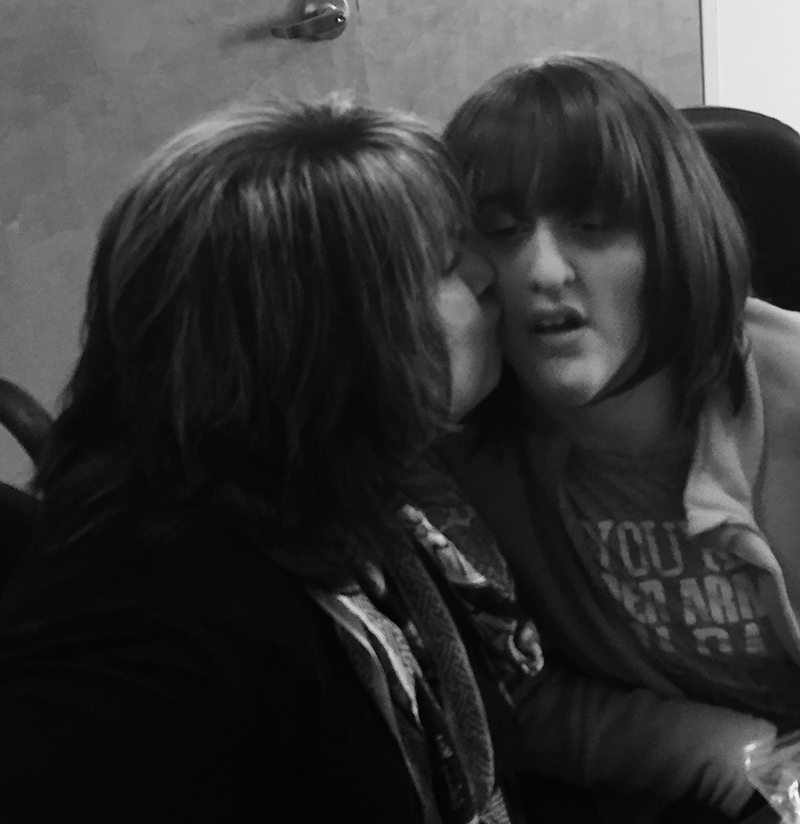
Although my father was the “professional” storyteller in our family, given his career as a columnist and pastor, my mother was well-known for her own unique style of describing an event. She knew how to enjoy life in general, but had an exceptional knack for absorbing the details, and was willing to share most of them if ever asked.
“Big brush it, Faye,” Dad would plead when she got tangled up in the play-by-play of a story. “Put that little paint brush down and grab a big one,” he’d say with his crooked smile, his signature tell that he was teasing. “We don’t have all day.”
And she would stop, clear her throat, and try to summarize, but her real gift was in the details.
I thought about Mom when it was my turn to put into words what was on my heart. I’d been attending a Wednesday morning meeting—food, fellowship, and a book discussion—in hopes of getting out a bit more and making some new friends to help fill my empty nest. After the discussion time, people shared what’s going on in their personal lives, matters of the heart. I’d always struggled with what to say, how to say it, or if I should say anything at all.
But my heart was heavy one Wednesday; it needed a release.
“Please remember my Madison,” I blurted out. “She’s my adult daughter with autism. She’s still having a hard time with her behaviors, hurting herself,” I rattled on. “I’ve found a program that may help and we’re applying. It’s a Neurobehavioral Unit.” The detail flew out of my mouth, like anyone would know what I was talking about. In the weeks I’d been learning about the program, I hadn’t met anyone (outside of my Pathfinders for Autism colleagues) who had heard of the program, much less experienced it. I swallowed hard, blushing. “I hope they accept her.”
What I couldn’t bear to say was that this last year has been one of the worst years I have ever experienced with Madison. That she hit herself so hard she fractured her cheekbone. That she pulled her hair out, balding the hairline on the other side of her face. That her repetitive hand-rubbing was done so hard and often that she calloused the palms of both hands. That even with the good care she received after two psychiatric admissions, and the excellent care she continues to receive in her group home and program, she is still hitting herself despite everyone’s best efforts. Those words I kept to myself.
Others shared. The meeting ended. Some of us continued to chat while most left.
Then one woman came back in the room, bringing with her another woman from a different book group. “Becky, I wanted you to talk to my daughter. She worked at that Neurobehavioral Unit. When you mentioned it, I knew I had to connect you two.”
Stunned, I could barely absorb her daughter’s words. She told me that she worked there for twelve years. Had every role imaginable. Gave me descriptions about how the program works to reduce self-harm. She comforted me. Encouraged me. And then, she gave me the best thing ever—her email.
Thank goodness I chose to use Mom’s small paintbrush that day. It gave me an incredible gift—companionship on a journey that had been and was promising to be so lonely.
Details matter, Mom taught me. They separate the uncommon from the ordinary. They give us hooks linking us to each other’s worlds.
How about you? Has the detail from a small paintbrush ever given you a gift, an unexpected connection? Tell me about it. I’d love to know.
My best—always,
Becky (Nana B)
P.S.For more about life with Madison, click here or here to honor her.
Sign Up Here, if you’d like to receive Thoughtful Thursdays via email.
Follow Me!